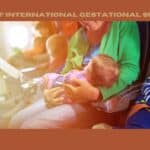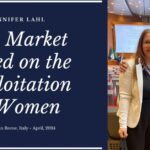INVESTOR’S BUSINESS DAILY
Bioethics: Missouri passes Amendment 2, which makes cloning a constitutional right. Meanwhile, scientists grow a liver from umbilical cord cells, real progress the media and grandstanding politicians ignore.
About the same time actor Michael J. Fox, former star of the appropriately named sitcom “Spin City,” was appearing in ads claiming Republican candidates were against “life-saving” stem cell research, British scientists announced a breakthrough in stem cell technology. They grew the world’s first artificial human liver in a lab using stem cells obtained from umbilical cord blood.
Remember, you read it here first. In fact, this might be the only place you’ve read it, given the mainstream media blackout of any successes resulting from the nonembryonic stem cell research that losing GOP candidates Michael Steele in Maryland and Jim Talent in Missouri, both targets of the Fox ads, supported enthusiastically.
Other than pro-life Web sites such as LifeNews, few noted the success of Nico Foraz and Colin McGuckin of Newcastle University. The two researchers successfully grew minilivers capable of being used to test new life-saving drugs and down the road providing life-saving treatment to patients in need of liver transplants.
“A story that doesn’t validate the stem cell mantra that embryonic stem cells offer the ‘best hope’ for future cures isn’t worth much attention,” writes leading bioethics critic Wesley Smith in the Weekly Standard. full article
Author Profile

- Jennifer Lahl, MA, BSN, RN, is founder and president of The Center for Bioethics and Culture Network. Lahl couples her 25 years of experience as a pediatric critical care nurse, a hospital administrator, and a senior-level nursing manager with a deep passion to speak for those who have no voice. Lahl’s writings have appeared in various publications including Cambridge University Press, the San Francisco Chronicle, the Dallas Morning News, and the American Journal of Bioethics. As a field expert, she is routinely interviewed on radio and television including ABC, CBS, PBS, and NPR. She is also called upon to speak alongside lawmakers and members of the scientific community, even being invited to speak to members of the European Parliament in Brussels to address issues of egg trafficking; she has three times addressed the United Nations during the Commission on the Status of Women on egg and womb trafficking.
Latest entries
 infertilityApril 23, 2024The Rise of International Gestational Surrogacy in the U.S.
infertilityApril 23, 2024The Rise of International Gestational Surrogacy in the U.S. Assisted Reproductive TechnologyApril 16, 2024Founder Jennifer Lahl’s Speech on Surrogacy to the Casablanca Declaration
Assisted Reproductive TechnologyApril 16, 2024Founder Jennifer Lahl’s Speech on Surrogacy to the Casablanca Declaration #BigFertilityFebruary 27, 2024No, Alabama Didn’t Ban IVF
#BigFertilityFebruary 27, 2024No, Alabama Didn’t Ban IVF ArticleSeptember 25, 2023The Little Engine That Could
ArticleSeptember 25, 2023The Little Engine That Could

